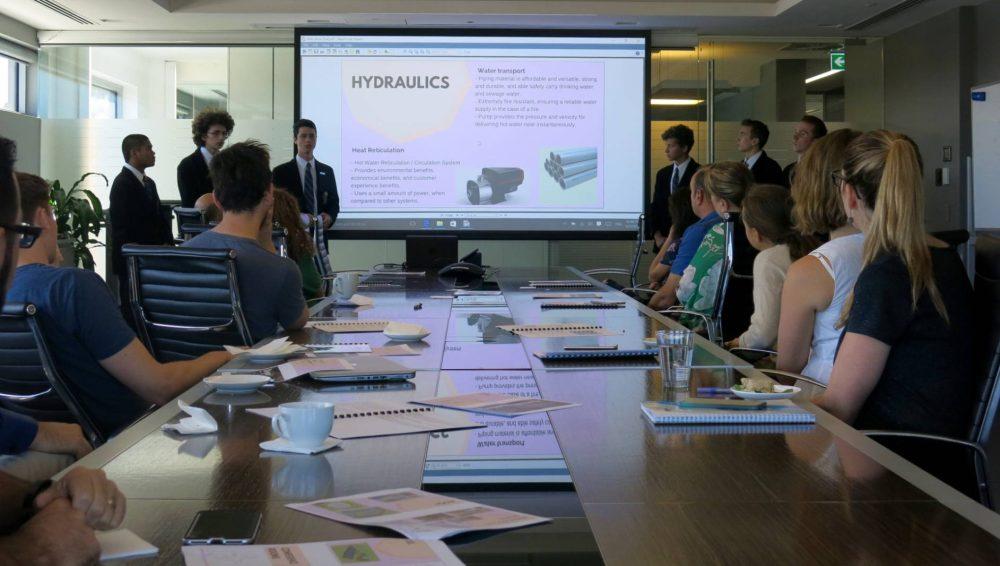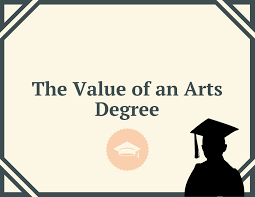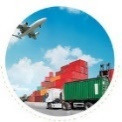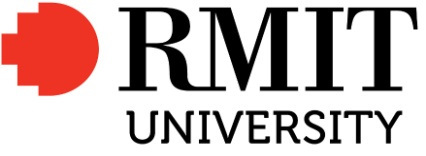
Newsletter
Careers News May 2022
25 February 2022
On Friday, 6 May, The College celebrated Edmund Rice Feast Day
We started the day with a full school mass, providing ourselves the opportunity to reflect on what the day means to us all individually and celebrate the life of Edmund Rice. Students then departed on a 10km "Solidarity Walk" along the Maribyrnong, which concluded back at the College, where our students found the grounds full of exciting activities and food trucks galore!
Money raised on the day was donated to Brother Beausang - Edmund Rice Catholic Education Centre
In the coming weeks, 12 students across Years 7-12 will be participating in the Edmund Rice Education Beyond Borders 'Global Classroom Project', where they will have the opportunity to video conference with schools around the world (including BBCEC) to strengthen our bonds with the global Edmund Rice community.

We hope everyone had a great day and had an opportunity for some personal reflection.
St Bernard's continues their ongoing participation in the Edmund Rice Community and Refugee Services Homework Club
Each Wednesday this Term, our Year 12 Community Service students will be visiting St Albans Community Centre to assist local refugee students in the area with their homework. Our students will also be providing general mentoring and support. St Bernard's College is delighted to continue fostering its strong relationship with the team at St Albans Tutoring.

“Background to the Bendigo 150”
An excerpt from the 1982 Clairvaux written by Mr Paul Quinn
In 1982 a group of senior students were running beside the river near Aberfeldie Park. It was our usual daily training run in preparation for the ACC Cross Country. Someone in the group mentioned that it would be good if there was more reason for our training than the events planned for the cross country season. It occurred to me that we could kill two birds with the one stone. Just prior to this particular training session the Student Council had been asked what we had contributed to worthy causes outside the school. So I mentioned we could always conduct a runathon and donate the money to charity.
As the run progressed, we chose Bendigo as our starting point. This was because Paul McGuire who was the College Vice Captain that year, pointed out it was 150 kilometres from St Bernard’s. He knew this because he had ridden a bike to Bendigo where his grandmother lived, and he had a speedo on his bike which recorded the distance. It was convenient he lived very close to the school just off Buckley Street.
Next morning before school a few of those on the training run visited the staffroom before school just to make conversation. I repeated our recently hatched scheme. Most of the staff that were present just laughed. The comment was that it would not get any interest and was bound to fail. It was probably this response more than any other that ensured the success of the event for that year. I made a bet with our art teacher that we would succeed.
Despite the initial skeptical reaction from staff one of the hallmarks of the run was the excellent working relationship between staff and students. It was great to see that the present student committee and Mr Gerard Brown were able to continue with this tradition.
And so began the very successful Bendigo 150. In 1998 11 students from St Columba’s joined our squad of 33 students. With more traffic on the roads it was decide to change to the Maribyrnong River. The main focus has continued with fund raising for charities.
WORK EXPERIENCE YEAR 10
Planning for the Industry Engagement week of 20-24 June began in late term 3, 2021.
For those students who have chosen the traditional work experience option (excluding Agere and Applied) they have until 30 May to return work experience forms. Students have been told that if they do not feel confident about meeting this deadline, they must contact either Mr. Rosel or Ms Miles urgently!
The weeklong Careers Capabilities Program has been capped at 30 students and is fast booking up.
VICTORIA POLICE INFORMATION EVENING
The Victoria Police Applicant Attraction Team are hosting an information session on the police officer role in Airport West on Tuesday 24 May, 2022.
There will be a focus on how students and younger applicants can improve their chances of a successful application and some of the attributes Victoria Police are looking for.
Please see event information below:
EVENT DETAILS:
When: Tuesday 24 May, 2022
Where: Skyways Hotel – 113 Matthews Avenue, Airport West 3042
Time: 6:00pm - 7.30pm
If you are seeking a stimulating, challenging and rewarding career and have values aligned to those of Victoria Police, we encourage you to consider a career in policing.
Please join us on an information session to learn about the Police role, the recruitment process, training at the Academy and hear from some local members about their journey with Victoria Police.
To register visit www.police.vic.gov.au/police-information-sessions
To find out more about the role of a Police Officer, visit www.police.vic.gov.au/careers

Where can an Arts Degree take you?
There is often the debate about the value of an Arts Degree and what kind of role an Arts graduate could find in industry. The list of roles is quite varied, and includes -
Teaching & educational administration
International aid and trade agencies
Arts production and management
Public service and social welfare agencies
General management and administration (local and global)
Communications industry, publishing, media, and public relations
Tourism and hospitality
One of the very important things for students to note, is that an Arts student learns skills that are very transferrable in industry. These include communication skills, critical thinking and reading skills, analytical skills, and research skills – browse Career FAQS - What to do with your Arts Degree to learn more. Monash University recently shared an excellent YouTube video about a Career with a Bachelor of Arts.

Studying the Bachelor of Applied Innovation alongside another Degree
Swinburne University is introducing the Bachelor of Applied Innovation to be studied in conjunction with a number of other degrees. With just one extra year, students get to graduate with a double degree.
Depending on the degree a student chooses to study alongside the Bachelor of Applied Innovation, various skills will be developed, including –
a student’s collaboration, creativity, and complex problem-solving skills in real-world contexts.
how to apply innovation toolkits, prototype solutions and participate in challenges such as innovation sprints inspired by their passions and interests.
gaining the practical and technical skills to think strategically about how to employ innovative ideas in their studies and in the broader society.
learning how to make decisions of impact, based on analytical and strategic thinking, human understanding, and respect for future generations – with supporting technological know-how.
undertaking placements, internships or industry-based project work, and benefit from interdisciplinary, experiential learning. Students will tap into their creativity, curiosity, and leadership potential as they gain the skills to build a better future.
The following double degrees including Applied Innovation are on offer. Students are encouraged to browse the links that provide more details about the core and major units on offer in the Applied Innovation degree as they do differ from double degree to double degree:
Bachelor of Business Information Systems/Bachelor of Applied Innovation
Bachelor of Criminal Justice and Criminology/Bachelor of Applied Innovation
Bachelor of Engineering (Honours)/Bachelor of Applied Innovation
Bachelor of Games and Interactivity/Bachelor of Applied Innovation
Bachelor of Information and Communication Technology/Bachelor of Applied Innovation
Bachelor of Media and Communication/Bachelor of Applied Innovation
Bachelor of Screen Production/Bachelor of Applied Innovation

Career in Veterinary Nursing
The Good Careers Guide * states that Veterinary Nurses provide support to veterinarians in the management and care of animals receiving medical and surgical treatment.
The Personal requirements for a Veterinary Nurse include -
Enjoying working with animals
Able to handle animals with confidence and patience
Able to make accurate observations
Having good communication skills
Having good organisational skills
Being able to work as part of a team
Being caring and understanding
Some of the tasks a Veterinary Nurse might have to do include –
Providing animal care advice, and preparing, delivering, and reviewing animal care education programs.
Assisting Veterinarians to administer anaesthetics and oxygen during operations.
Holding animals to allow examination and treatment by Veterinarians.
May act as receptionist, accept payments, and undertake clerical work.
Giving medications to animals.
Placing animals in cages for recovery from operations and monitoring their condition.
Maintaining stock control and records.
May perform diagnostic laboratory tests.
Preparing instruments and handing them to the Veterinarian.
Cleaning and sterilising examination tables and equipment.
* The Goods Careers Guide – Veterinary Nursing
Veterinary Nurses need to have a minimum of a Certificate IV in Veterinary Nursing, although qualifications can include diplomas and bachelor degrees. Some of these can be found at Box Hill Institute, Melbourne Polytechnic, and La Trobe University.

Pathway to Physiotherapy
In 2021, Monash University introduced the Doctor of Physiotherapy, a three-year graduate-entry degree based at the Peninsula campus. This offers students with a passion for physiotherapy another pathway to a qualification, if unsuccessful in their application to the Bachelor of Physiotherapy (Honours).
A Monash Bachelor of Biomedical Science, Science, or Health Sciences degree is a great foundation for the Doctor of Physiotherapy. Students must also meet specific unit requirements.
Find out more at Doctor of Physiotherapy.
University Clinical Aptitude Test
The University Clinical Aptitude Test (UCAT) is an admissions test used by the UCAT ANZ Consortium of universities in Australia and New Zealand for their medical, dental, and clinical science degree programs. Universities requiring the UCAT are listed at this link - Universities requiring the UCAT. Students intending to apply for courses requiring the UCAT at any of these universities are reminded that they will need to book a test.
Bookings will open on 1 March 2022 and close 17 May 2022. The testing dates will be from 1 July 2022 to 12 August 2022.
Students who are preparing for entry into any of these courses are encouraged to familiarise themselves with the format of the test at UCAT Test Format and the practice tests and preparation material provided at UCAT Preparation.
Find out more at UCAT.

Freight, Transport, and Logistics Industry
An industry that is continuing to grow is in transport and logistics. There are many careers in this diverse industry from actually driving a truck or train, to being part of the logistics team involved in the planning and distribution of freight and people. A particularly important part of this industry is in international freight – be it freight coming into Australia (imports) from all over the world, or cargo being sent from Australia (exports). People involved in this do not move the freight themselves, but instead act as an agent, connecting exporters, importers, and various transportation services like shipping, air freight, road transport, and rail.
An interesting website to visit is Make Your Move and students can also access videos of current students training in this industry.
There are two universities in Melbourne that offer dedicated logistic courses – RMIT and Victoria University. Students are encouraged to browse the following links providing more information about these courses:
Designed to help to develop a students’ knowledge and interest in contemporary issues central to the logistics and supply chain management industry. This unique degree prepares students for this essential industry, providing them with sought-after knowledge, and both hard and soft skills to allow them to thrive in a challenging and rewarding career. Throughout their studies, students will focus on developing end-to-end supply chain knowledge to deal with day-to-day and strategic supply chain issues.
Diploma of Logistics at RMIT
Designed to give students an understanding of key business areas while they develop specialist knowledge in transport and logistics planning, blockchain in supply chain management, and operations and risk management. This combination of skills, plus opportunities to engage in practical projects and collaborate globally with students and clients, will prepare students to move straight into the workforce after graduation, or to continue on into the bachelor degree.
Bachelor of Business (Supply Chain and Logistics Management) at Victoria University
Students enrol into the Bachelor of Business and study the Supply Chain and Logistics Management major. This major will enable students to pursue a business career in logistics and supply chain management, export/import operations. This major will also give students the skills to work closely with other companies in areas like manufacturing and services.
Logistics units/subjects are often offered in business degrees at universities.
Students are encouraged to browse VTAC for a comprehensive list of what is on offer across tertiary institutions in Victoria.
![]()
News from Victoria University
New Bachelor of Data Science
The Bachelor of Data Science has been designed for students with an interest in statistics, data analysis, machine learning and software development. The course has an industry-focused curriculum with a focus in practical expertise.
With market information and technology evolving at great speed, skilled professionals are needed to transform data into actionable insights for business. The Bachelor of Data Science is designed to meet this demand and give students the tools to analyse trends for business success, and launch a career perfectly aligned to industry needs.
Students will gain targeted expertise in:
mathematics and statistics
exploratory data analysis
machine learning
regression
classification
clustering techniques
text analytics
image and speech processing.
The VCE entry requirements are the completion of the VCE or equivalent, Units 3 and 4: a study score of at least 25 in English (EAL) or 20 in any other English, plus a study score of at least 20 in Mathematics (any).
Find out more about this course at Bachelor of Data Science.

Studying Design Courses at RMIT
Whether you’re passionate about graphic or interior design, merchandising or animation, study at the #1 design university in Asia Pacific.
RMIT offers a range of courses for students who are creative, curious, and keen on studying the creative arts.
Students are encouraged to browse this link to find out about all that is on offer.

Australian Apprenticeships and Traineeships Information Service
The Australian Apprenticeships and Traineeships Information Service (AATIS) offers pathways information to students, job hunters, career advisers and employers. The website, app and resources are used by schools, parents, friends, and supporters providing career planning and direction. AATIS is free to use and is funded by the Australian Government Department of Education, Skills and Employment.
The Australian Apprenticeships Pathways website - AAPathways - is a hub providing in-depth information about Australian apprenticeships and traineeships, including over 2,000 sample job and training descriptions, steps on how to find an apprenticeship, industry-based job pathways charts and practice literacy and numeracy quizzes.
Students are encouraged to browse both the AAPathways website, as well as the AATIS website.

Career in Naval Shipbuilding
With more than $160 billion invested by the Australian Government, and 15,000 people needed at the peak of work, Australia’s Naval Shipbuilding Industry is growing rapidly – this is great news for young Australians looking for a secure and dynamic career!
Modern shipbuilding is more than working with sheets of metal in shipyards. It is highly technical and incorporates cutting edge engineering, technology, and systems to ensure the ships and submarines are invisible to attack, can detect threats and ensure the safety of the crew on board.
In the coming years, Australia’s Naval Shipbuilding Industry is going to need people with lots of different skills to work in a wide range of roles – from city-based office roles to hands-on positions in the shipyards.
Students keen on finding out about studying to work in this industry, are encouraged to browse Naval Shipbuilding College to discover more. Students might also like to watch this YouTube Life as an Apprentice in Australia's Shipbuilding Industry clip.

Victorian Law Week 2022
There’s something for everyone during Law Week this year! Law Week is an annual festival of events which makes learning about the law easy. This year Law Week will look different to last year, but it is going ahead, nonetheless. With webinars, interviews, information sessions, free legal advice, podcasts, and plenty more, Law Week makes learning about the law easy for all Victorians.
This year, Law Week will take place from Monday 16 – Sunday 22 May 2022.
Check out the Victorian Law Week program at Law Week 2022.
![]()
New Bachelor of Criminology and Criminal Justice degree
The Thomas More Law School has introduced the Bachelor of Criminology and Criminal Justice.
Already proving popular with students in 2022, this course explores the causes of antisocial behaviour and develops the knowledge and expertise needed to make a valuable contribution in the criminal justice sector. Students gain a deep understanding of the complex causes and impact of crime, and the legal and social policies that keep society safe. The degree includes studies in forensic psychology, forensic science, cybercrime, border protection and biosecurity and understanding violence and trauma. All criminology students also undertake a community engagement in the third year of the course.
Find out more at Bachelor of Criminology and Criminal Justice.
Welcoming Community Group
The Welcoming Community Group met on Wednesday 11 May. It was great to see some new faces attend the meeting and provide some wonderful new ideas.
The major talking point was the upcoming Ladies Night Out, tickets have been selling quickly so if you haven’t bought a ticket yet be quick as they are limited and selling fast.
DONATIONS
The Welcoming Community Group are looking for donations for the raffle at the Ladies Night Out.
We are looking for support in the form of:
Cash Donations
Products
Experiences
Vouchers/Tickets
That can be used as raffle prizes on the night.
Contributors will be acknowledged in all electronic material.
Your support is extremely important to the success of this event and is greatly appreciated.
Donations can be dropped in to reception at the College or if you would like more information contact David Formosa on dformosa@sbc.vic.edu.au
As of May 2020, the Uniform Shop will be operating by appointment only. This will help alleviate lengthy queues during peak periods.
With the phasing in of the new Sun-smart bucket hats next term, we will be selling the remaining stock of SBC baseball caps for $8 each. Please note that the caps will not be available to purchase from October onwards but students will still be permitted to wear them.
Click here to make an appointment
If you know the sizes of the items you require, visit https://shop.sbc.vic.edu.au/ to order online.
For all other uniform enquiries, or to volunteer in the uniform shop, please email rbuhagiar@sbc.vic.edu.au or phone 9289 1176.

After a difficult two years of COVID the Welcoming Community Group invite you to come and celebrate once again.
Don't miss out! There are only 150 tickets available for this event.
Tickets are $105 per person and all inclusive
- Champagne on Arrival
- Three course dinner with drinks.
- DJ Entertainment.
Friday 17 June 2022 6:30 PM - 11:00 PM